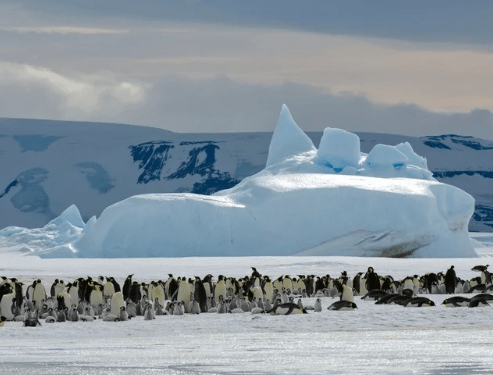China and Russia oppose the creation of additional Antarctic maritime reserves.
A global committee working on Antarctic conservation was unable to reach consensus on a plan on Friday to create three new marine protected areas, an objective that has lagged behind schedule for years, according to AFP.
There was no agreement made. According to Cesar Cardenas, a member of the Chilean delegation and the Chilean Antarctic Institute, it was not able to get a roadmap for protected zones in the waters around Antarctica.
Cardenas said China and Russia opposed the creation of more protected zones.
Nearly four million extra square kilometers (1.5 million more square miles) of ocean would be protected from human activity as a result of the effort to establish the sanctuaries around Antarctica to combat climate change and maintain vulnerable ocean ecosystems.
The locations are home to many different kinds of krill, including penguins, seals, toothfish, whales, and large populations of them.
Three new marine protected areas (MPAs) in East Antarctica, the Weddell Sea, and the Antarctic Peninsula will be created, according to proposals presented at a meeting of the Commission for the Conservation of Antarctic Marine Living Resources (CCAMLR).
There are now two in Antarctica—one of 2 million square kilometers in the Ross Sea region, established in 2016, and one of 94,000 square kilometers near the South Orkney Islands, formed in 2009. Activists expressed dissatisfaction with the lack of movement.
Unfortunately, this special conference came to a similar conclusion as the previous six annual meetings, with two nations stymieing the efforts of the other 25 CCAMLR members to establish a network of Southern Ocean MPAs, according to a statement from Andrea Kavanagh of the non-profit Pew Bertarelli Ocean Legacy.
Since the expansion plan was initially put up by Australia, France, and the EU in 2010 before being cut down in 2017 in an effort to garner more support, Beijing and Moscow have played a significant role in sabotaging it.
Global warming poses a special danger to Antarctica. Climate change, which is leading to a dramatic decline in sea ice, is one of the main challenges to this region. According to Rodolfo Werner, a scientific and political advisor to the Southern Ocean and Antarctic Coalition (ASOC), sea ice is crucial to the life cycle of Antarctic krill.
The establishment of marine protected zones is crucial because, above all, it safeguards biodiversity by reducing fishing pressure in these regions, he said. According to studies, the largest glaciers in western Antarctica are melting irreversibly and are holding enough water to increase the seas by several meters.
The EU is one of the 26 members of the CCAMLR, which oversees fisheries. The United States, China, Russia, the United Kingdom, France, India, Japan, Chile, Brazil, and South Africa are among them.
When the CCAMLR meets in Hobart, Australia, in October, the subject of marine reserves will be discussed once again.













